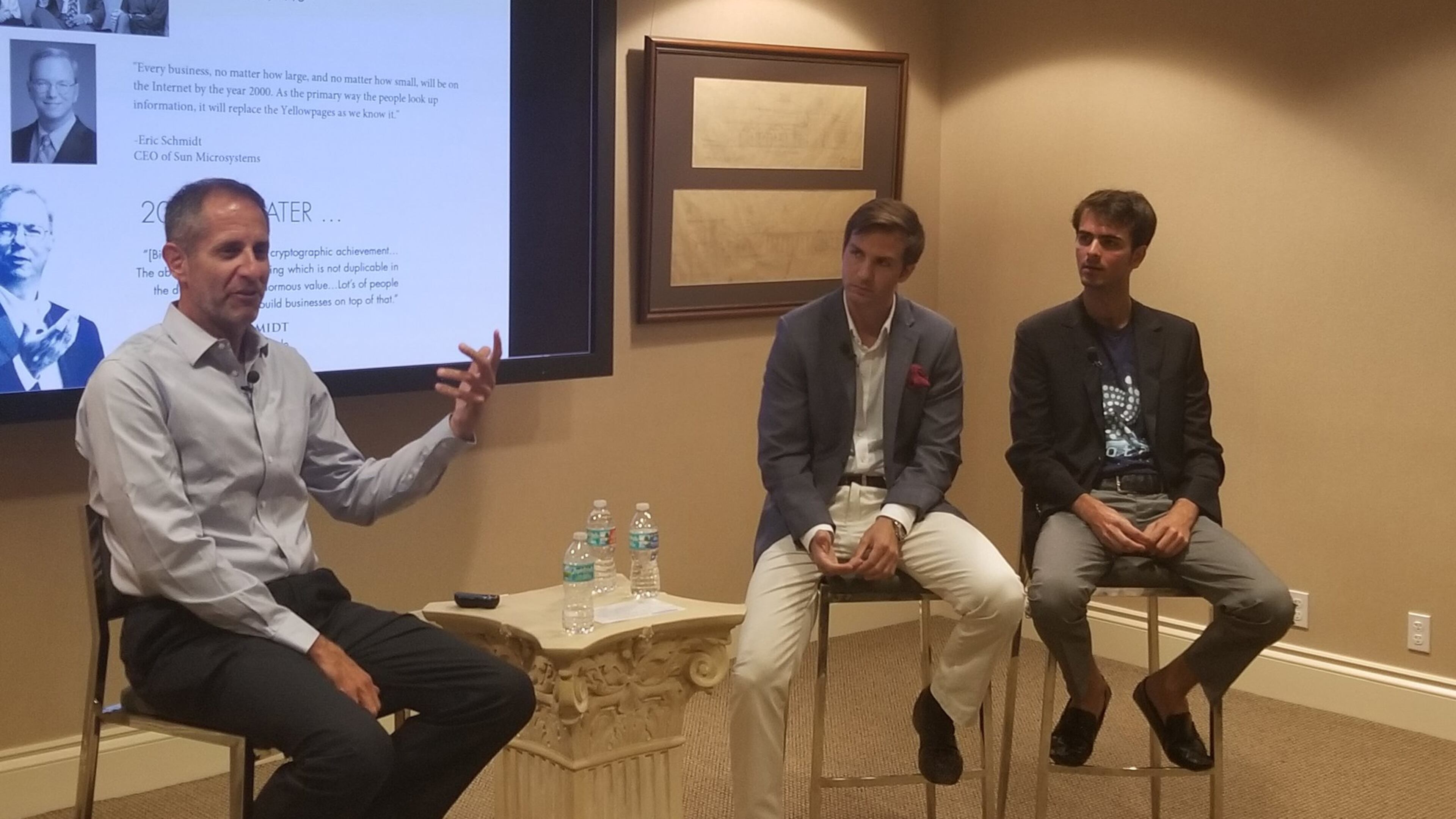Entrepreneurs host cryptocurrency, blockchain seminar in Palm Beach

A group of local entrepreneurs predicts that blockchain, the underlying technology for bitcoin and other cryptocurrencies, will have at least as big an impact on the world economy as the Internet.
That was one takeaway when Robert Riva and Michael Margaritoff, managing partners of Jefferson Capital, hosted a forum in town last week with blockchain expert Tim Myers.
Blockchain is a digital, public ledger that records transactions in a decentralized way through a large number of computers around the world, Myers, principal consultant Blue Latitude Consulting in Miami, told about 40 people who attended the event Monday at the Preservation Foundation of Palm Beach. It was invented to record bitcoin transactions in a way that eliminates the need for a central repository that stores data and verifies transactions like the middle-man function a bank would perform.
READ: What is bitcoin? What you need to know about cryptocurrency
But the technology has other uses, Myers said.
For instance, Myers thinks Airbnb could begin to lose hold of its market dominance in two to three years because a business relying on blockchain technology could directly link people who want to rent out a property with those looking to rent. The two parties would be connected — and the transaction would be recorded — through the blockchain, eliminating the need for the service that a company such as Airbnb performs. This would make it more lucrative for the seller and cheaper for the buyer because there would be no middle man taking a cut, Myers said.
“If you look at how the internet has changed our world, blockchain is going to do it faster,” he said.
One practical use could be a decentralized power grid, whereby someone with extra stored power from solar panels could sell it to someone who needs the power. Again, the transaction would be recorded and verified in the blockchain. Another could be a web browser that doesn't store search data in a central repository, which could eliminate personal data breaches and misuse of information by companies.
Cryptocurrencies are a difficult topic because most people don’t understand what they are. But Riva pointed out that many people don’t know what the internet is, but everyone knows its function.
“You don’t need to know what something is in order to take advantage of it,” he said. “You just need to know what it does.”
Both Riva and Margaritoff do, however, consider “cryptocurrency” to be a misnomer. About 1,500 cryptocurrencies exist, they said, but most of those are not trying to be a currency. Bitcoin, the largest and most widely known, is trying to replace savings accounts, but a coin such as Ethereum is trying to dip into the world of contracts and has no interest in replacing any form of money.
Riva and Margaritoff prefer the term “digital assets” so listeners don’t hear “currency” and immediately think money.
When considering digital assets, potential investors should seek industries that could be improved by eliminating the middle man, Riva said. And they should consider the background of the team behind the project and how likely it is to implement something that works.
But both warned investors to be cautious because many digital coins are just get-rich-quick schemes, and, Riva said, as many as 95 percent will fail.
“There are far too many cryptocurrencies and far too many of them are clear scams,” Margaritoff said.
Whether investors are ready to dump their life savings into the crypto market or are skeptical, they should all do their research, said former CNN contributor and panel moderator Felicia Taylor.
She started looking at the industry only about a month ago and suggests everyone do their best to understand it, because it could be here on a larger scale before we know it.
“You may not understand it, but the point is you need to know what it is,” she said.
